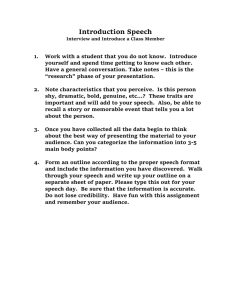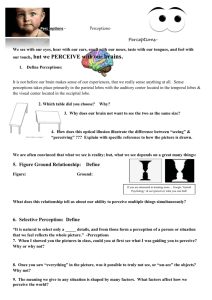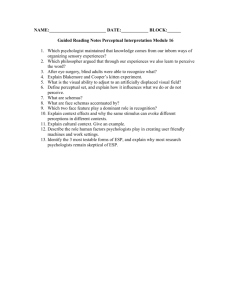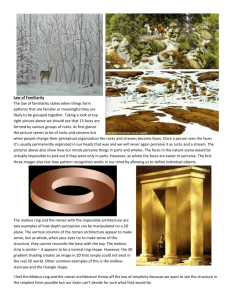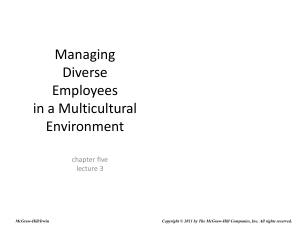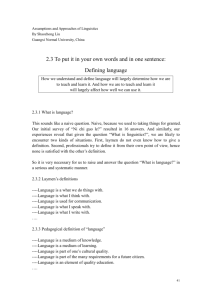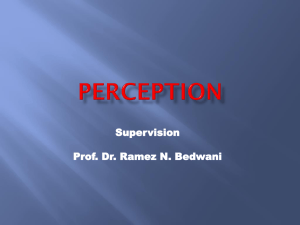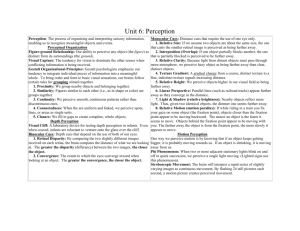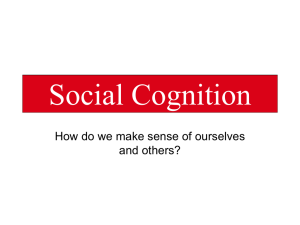Idealism: objections
advertisement
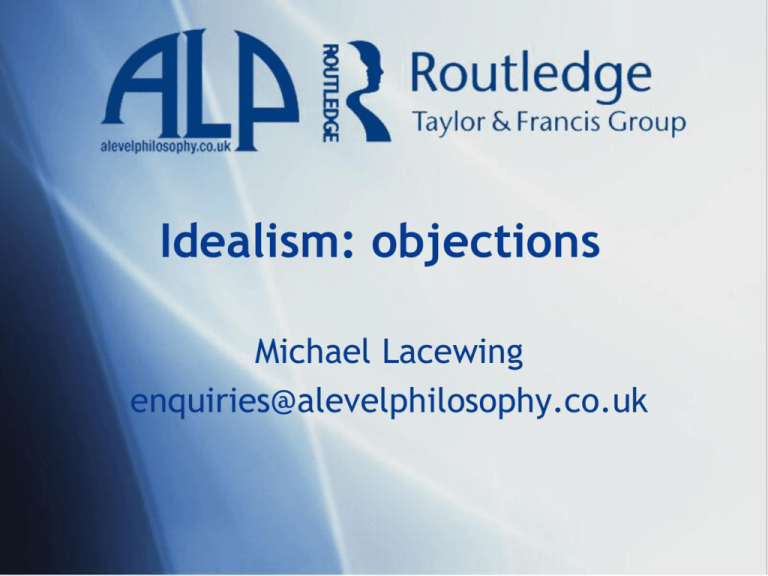
Idealism: objections Michael Lacewing enquiries@alevelphilosophy.co.uk Unperceived objects • When objects are not being perceived, then they don’t exist! • There was a young man who said, God must find it exceedingly odd when He finds that the tree continues to be when no one’s about in the Quad. The response • Dear Sir, your astonishment’s odd, I’m always about in the Quad. And that’s why the tree continues to be since observed by, yours faithfully, God. • Ideas we perceive are not just caused by God’s mind, but exist in God’s mind – Though not perceived by God. Illusions • How can idealism explain illusions? – Since we perceive ideas, there must be an idea that corresponds to the illusion. • We aren’t misperceiving in an illusion, e.g. a ‘crooked’ pencil – But we make a mistake if we think it would still be crooked out of water – To mark this, we rightly say, ‘The pencil looks crooked’. Hallucinations • What about hallucinations? – Hallucinations are dim, irregular, and confused – The idea perceived is part of the order of nature (coherent reality) – The idea is caused by the mind of God. • Objection: these only mark differences of degree, but hallucination is different in kind from perception – Berkeley can agree: the third criteria marks a difference in kind (if there is one) – And these are criteria for how we can tell, not what hallucinations are. Scientific investigation • In science, we manipulate objects to gain new perceptual experiences (e.g. dissection). How does idealism explain what is happening? • The thing we see, e.g. under the microscope, is not the same thing as seen with the naked eye – each idea is distinct – Language functions to pick out bundles of ideas that are typically connected – Science doesn’t investigate the ‘true nature’ of some unified object. Scientific investigation • Physical objects, as ideas, can’t cause anything, e.g. the heart can’t pump blood – Science doesn’t discover causal relations between physical objects. • Science investigates the regularities in our experiences, the connections between them. Objectivity • How can you and I see the same tree when the idea in your mind is numerically distinct from the idea in my mind? – The ideas are exactly resembling – it’s the same tree in that sense. • This isn’t enough: there is only one tree – We both perceive a copy of the idea of the tree in God’s mind. • Objective space and time exist in the mind of God. Solipsism • Solipsism: the view that only oneself, one’s mind, exists. • If everything that I perceive is minddependent, do I have any reason to think that anything exists apart from my mind? – In fact, does anything exist apart from ideas? Does even my mind exist as a thing? Reply • The mind is that which (actively) perceives, thinks, and wills, while ideas are passive. • I am aware of myself as capable of this activity. • Therefore, I am not my ideas, but a mind. • Being a mind myself, I have a ‘notion’ of what a mind is. • Therefore, it is possible that other minds exist. • My perceptions don’t originate in my mind. • Therefore, they are caused by some other mind. • The complexity, regularity, etc., of my experience indicates that this mind is God. • (I can also infer from experience that other minds exist.) On God • (The existence and role of God is not assumed but reached by argument.) • What I perceive is in my mind, not God’s mind. • God can’t have the sorts of perceptual experiences I have • God doesn’t perceive as I do, and does not undergo sensations, such as pain. • The ordinary objects of my perception change and go out of existence, but God’s mind is said to be unchanging and eternal. • Therefore, what I perceive couldn’t be part of God’s mind. Response • What I perceive is a copy of the idea in God’s mind. • The ideas of physical objects exist in God’s mind not as perceptions, but as part of God’s understanding. So while God doesn’t feel pain, he knows what it is for us to feel pain. • The whole of creation exists in God’s mind, eternally. • What I perceive, which changes, is what God wills me to perceive, and ‘things…may properly be said to begin their existence…when God decreed they should become perceptible to intelligent creatures’.
